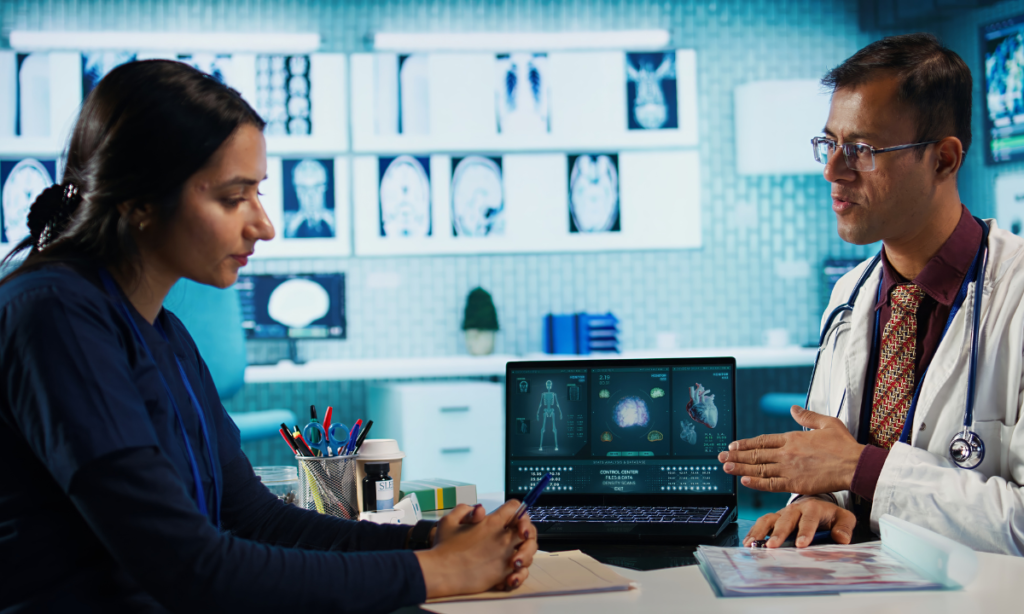Rheumatoid arthritis progression is a critical aspect of managing this autoimmune condition. The disease does not remain static; it evolves over time, impacting joints, bones, and even internal organs if not carefully monitored.
Regular evaluation helps doctors and patients track the pace of the disease and adapt treatments accordingly. Advanced imaging, including PET Scan in Bangalore, plays a vital role in detecting subtle changes that standard tests may miss.
But how exactly does MDP scan help in monitoring, and why is it crucial to understand the stages of this condition? Let’s dive deeper.
Understanding Rheumatoid Arthritis Progression

Unlike temporary joint pain, rheumatoid arthritis is a lifelong condition. Its progression means the disease gradually advances, causing inflammation that can lead to permanent joint deformity if untreated.
Rheumatoid Arthritis Stages
Doctors usually classify the disease into rheumatoid arthritis stages, which help in treatment planning:
| Stage | Characteristics | Impact |
|---|---|---|
| Stage 1: Early RA | Inflammation in the synovium | Mild pain, stiffness |
| Stage 2: Moderate RA | Damage to cartilage begins | Joint swelling, reduced mobility |
| Stage 3: Severe RA | Bone erosion starts | Visible deformities, severe pain |
| Stage 4: End-stage RA | Ankylosis (joint fusion) | Loss of function, disability |
Identifying which stage a patient is in allows doctors to use targeted therapies and monitoring tools.
Why Rheumatoid Arthritis Monitoring is Important
Rheumatoid arthritis monitoring is about more than just checking pain levels. It helps evaluate:
- Disease activity and inflammation levels.
- How well are medications and rheumatoid arthritis treatment therapy working
- Risk of complications such as metabolic bone disease (osteoporosis).
- Early detection of damage before it becomes irreversible.
Tip: Regular scans and tests allow doctors to adjust medication at the right time, preventing further damage.
The Role of MDP Scan in Monitoring

An MDP Scan in Bangalore is a type of bone scan that uses a radioactive tracer (MDP – Methylene Diphosphonate) to highlight areas of abnormal bone activity.
This scan is particularly valuable in:
- Detecting metabolic bone disease caused by long-term inflammation.
- Identifying bone erosion linked to rheumatoid arthritis progression.
- Evaluating treatment response over time.
- Spotting complications that may not be visible on X-rays or physical exams.
PET Scan in Monitoring Rheumatoid Arthritis
While MDP scans are highly effective for bone-related changes, a PET scan in Bangalore offers additional insights by highlighting metabolic activity in joints and soft tissues.
Together, these scans provide a comprehensive picture:
| Scan Type | Best for | Example Use |
|---|---|---|
| MDP Scan | Bone abnormalities | Detect early osteoporosis or bone erosion |
| PET Scan | Inflammation and activity | Track inflammation in joints and organs |
Rheumatoid Arthritis and Treatment Approaches
Monitoring is only half the journey; the other half is effective treatment. Rheumatoid arthritis and treatment options are designed to slow progression and improve quality of life.
Common Therapies:
| Treatment | Purpose |
|---|---|
| DMARDs (Disease-Modifying Anti-Rheumatic Drugs) | Slow disease progression |
| Biologics | Target specific immune pathways |
| Corticosteroids | Quick inflammation relief |
| Physical therapy | Maintain joint mobility |
| Surgery | Replace damaged joints |
Tip: Treatment works best when combined with regular monitoring through MDP and PET scans, ensuring therapies remain effective.
Lifestyle Tips for Slowing Progression
- Stay Consistent with Therapy: Skipping medications can worsen progression.
- Exercise Regularly: Gentle activities like yoga, swimming, or walking reduce stiffness.
- Eat Smart: Omega-3-rich foods (salmon, walnuts) help fight inflammation.
- Bone Health: Ensure adequate calcium and vitamin D to lower the risk of metabolic bone disease.
- Regular Scans: Keep track of disease activity with scheduled imaging tests.
Final Thoughts
Rheumatoid arthritis progression requires consistent monitoring to prevent long-term disability. With advanced imaging options like MDP Scan in Bangalore and modern tools such as PET Scan in Bangalore, doctors can detect even the smallest changes early and personalize treatment for better outcomes.
At Kiran PET CT, patients benefit from advanced technology and experienced specialists who ensure accurate evaluation and support for long-term management.
By combining monitoring with effective therapies, we can help patients live healthier, more active lives despite rheumatoid arthritis.
FAQs on Monitoring Rheumatoid Arthritis Progression
1. How often should monitoring be done?
Monitoring should typically be done every 6–12 months. However, during flare-ups or when treatment is being adjusted, more frequent evaluations may be required to track disease activity and prevent long-term complications.
2. Can MDP Scan detect early rheumatoid arthritis?
Yes, an MDP scan can detect early bone changes and abnormalities that traditional X-rays may not reveal. This makes it a valuable tool for identifying rheumatoid arthritis progression before severe damage occurs.
3. Is a PET scan in Bangalore useful for arthritis?
Absolutely. A PET scan in Bangalore helps visualize inflammation and metabolic activity in both joints and soft tissues. It provides doctors with detailed insights into disease severity and treatment effectiveness, supporting better clinical decisions.
4. Will monitoring stop the disease from progressing?
Monitoring alone cannot stop rheumatoid arthritis progression. However, it ensures early detection of worsening symptoms, allowing doctors to adjust medications or therapies promptly, which helps slow progression and protect joint function effectively.



